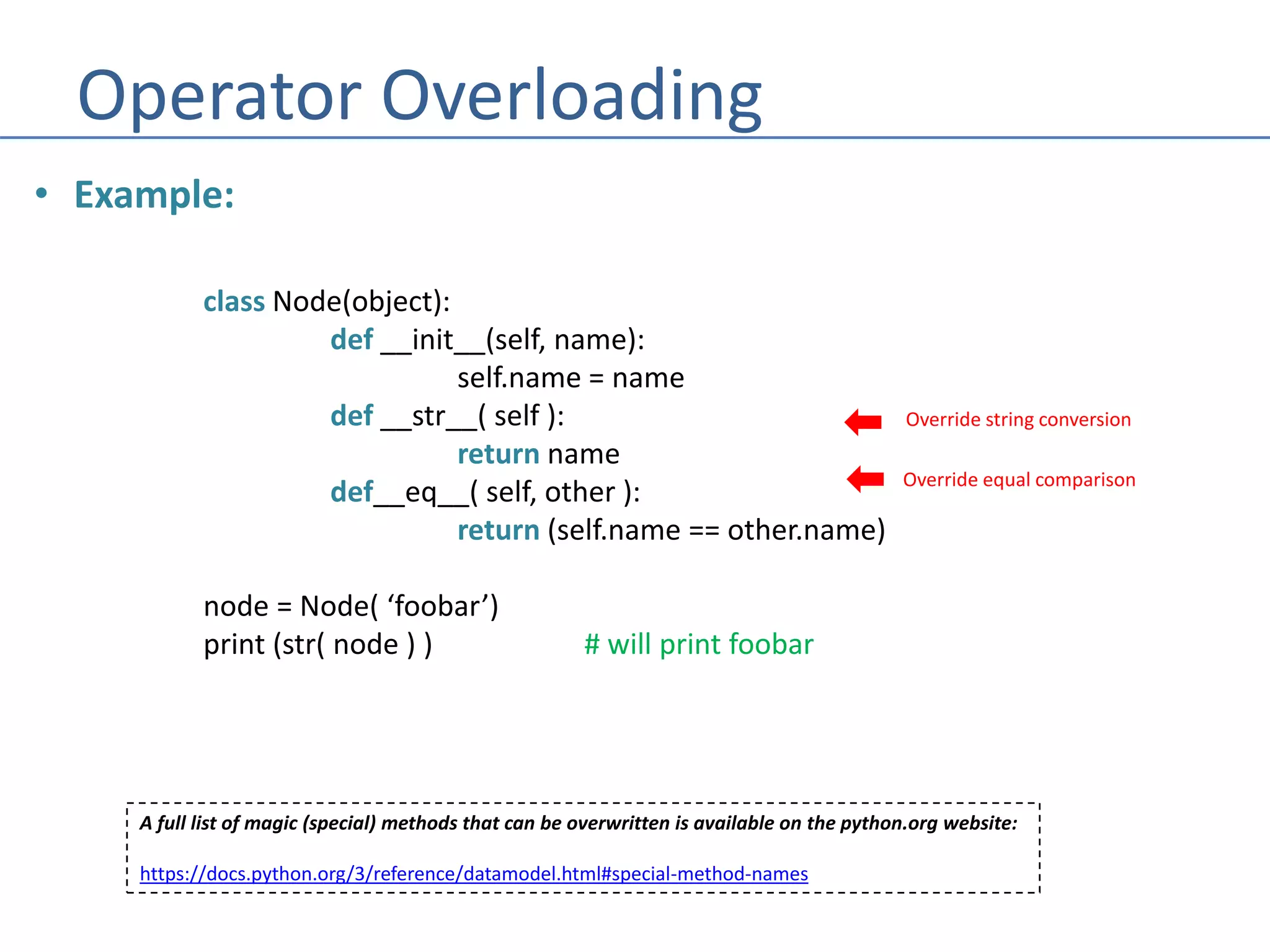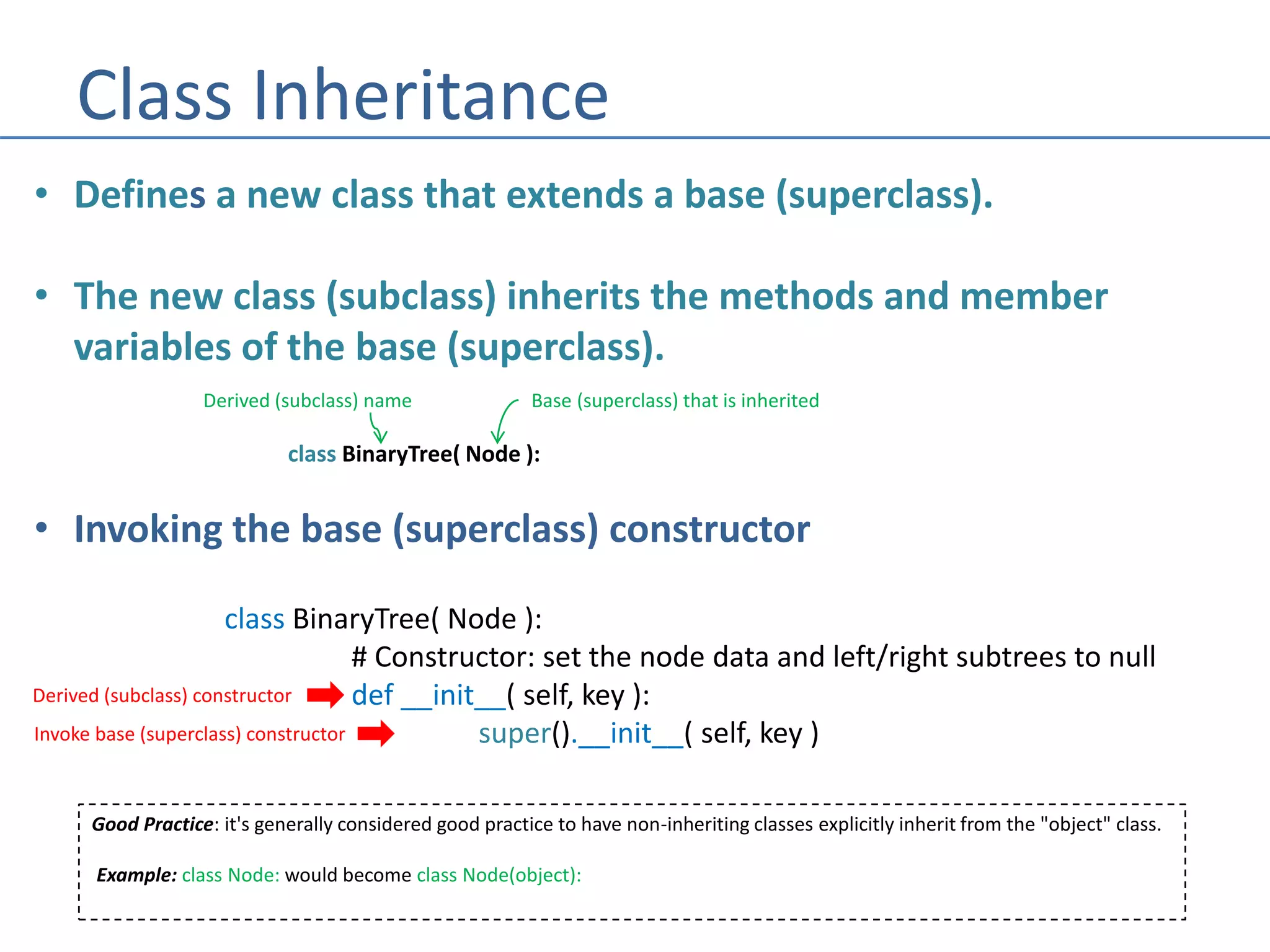The document outlines key concepts of Python object-oriented programming including class definitions, constructors, method overloading, operator overloading, and class inheritance. It explains the use of special reserved names like __init__ for constructors and provides examples of how to implement method and operator overloading. Additionally, it emphasizes best practices such as explicitly inheriting from the 'object' class for non-inheriting classes.

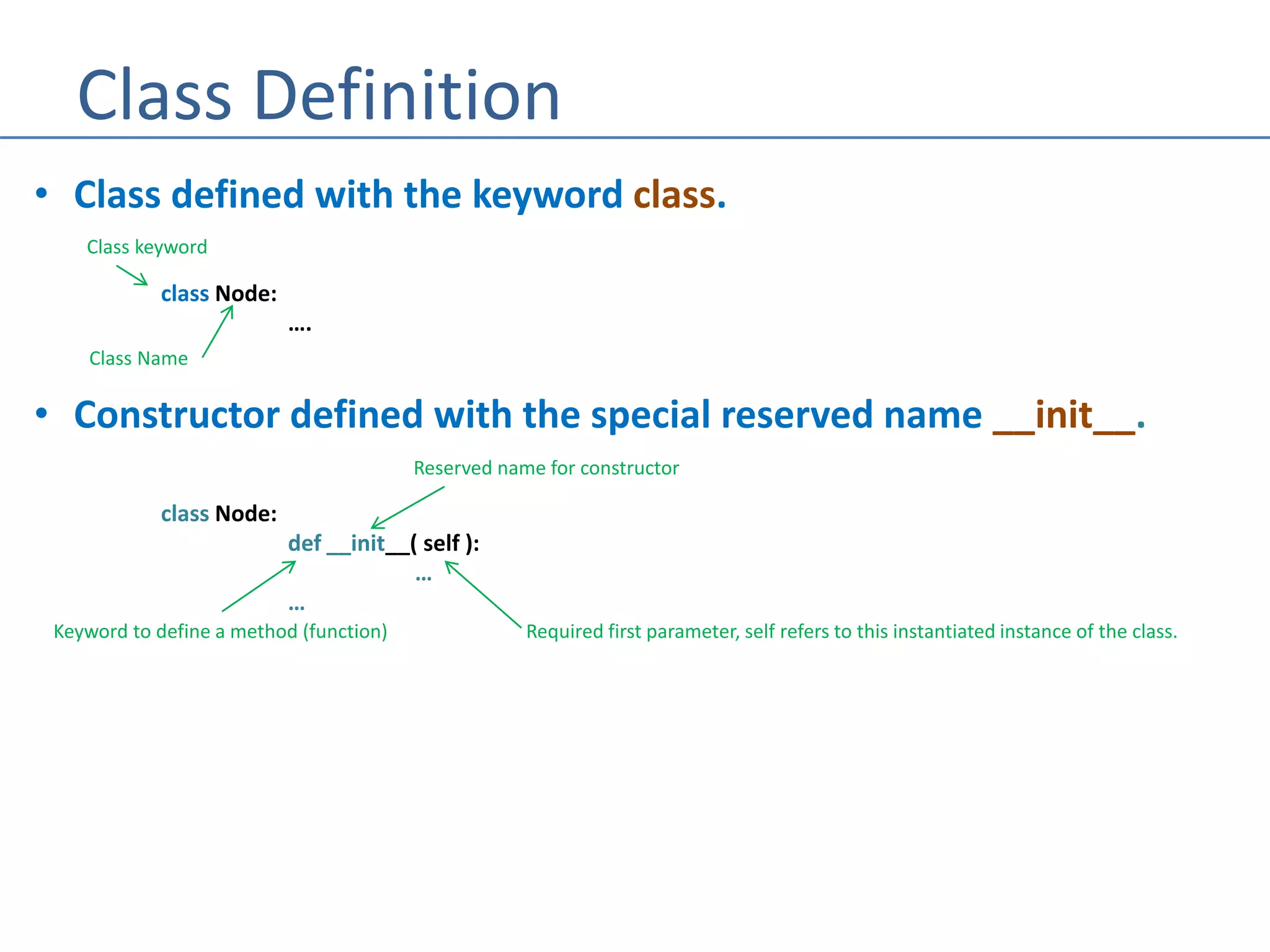
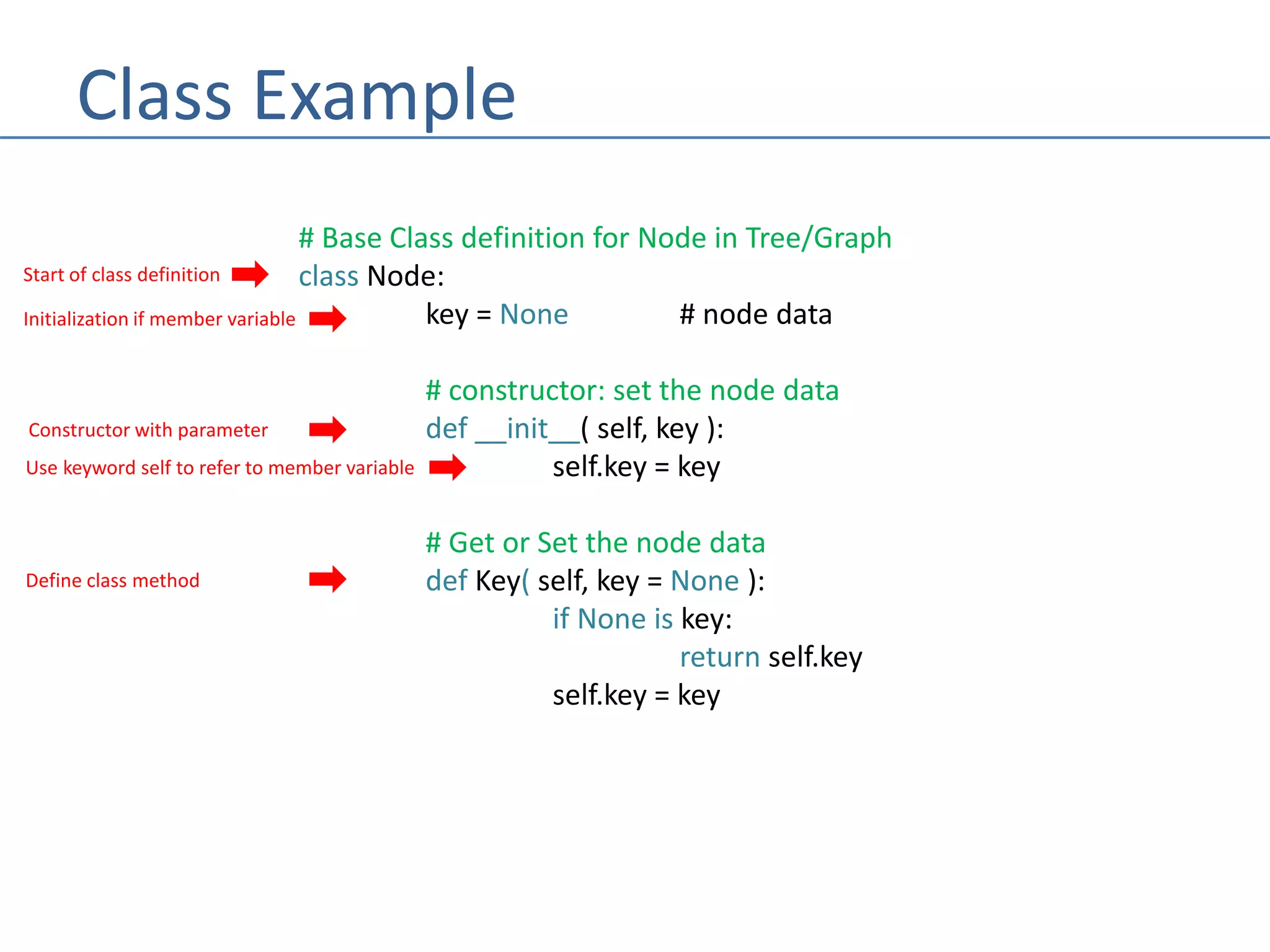
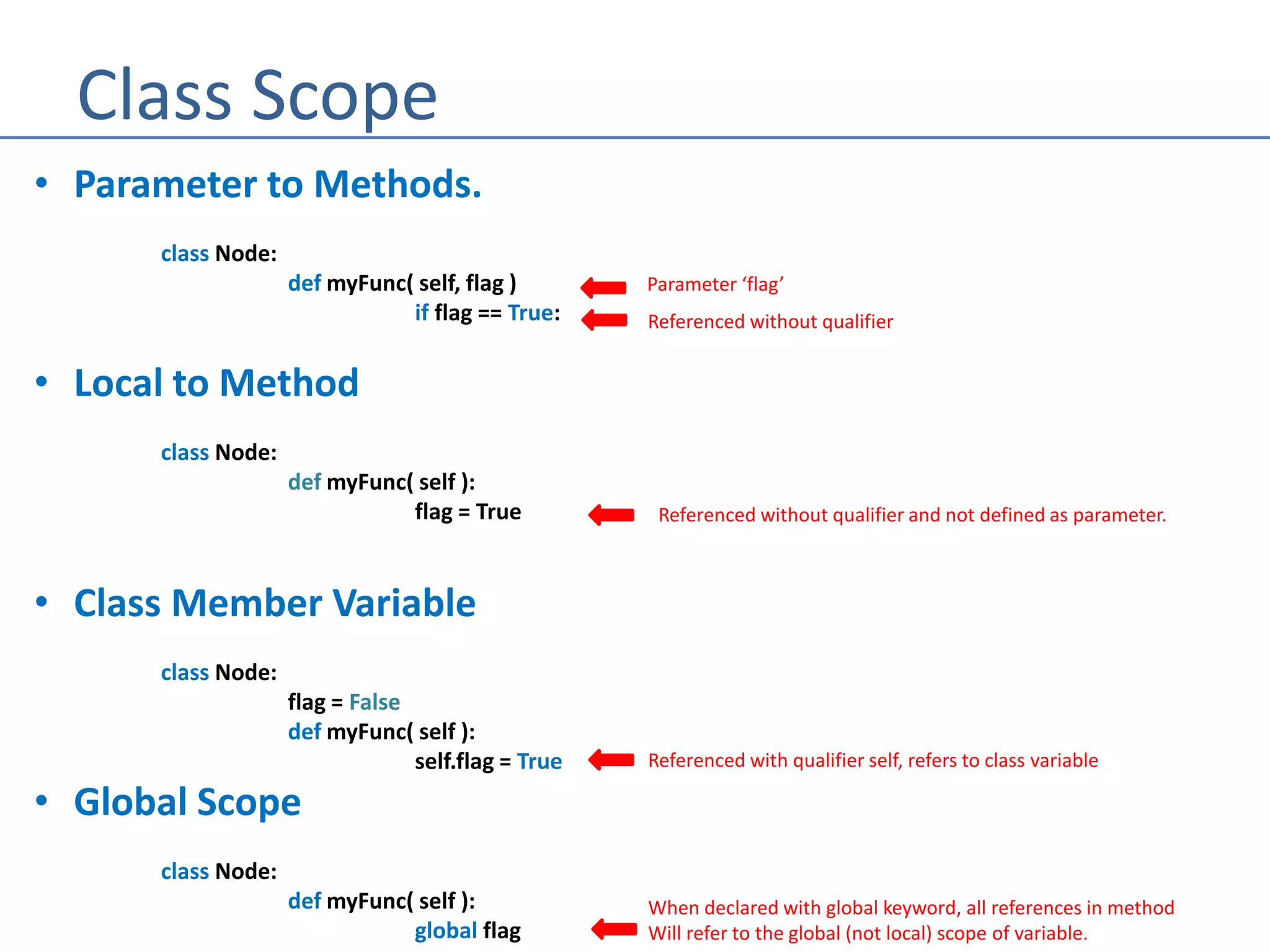
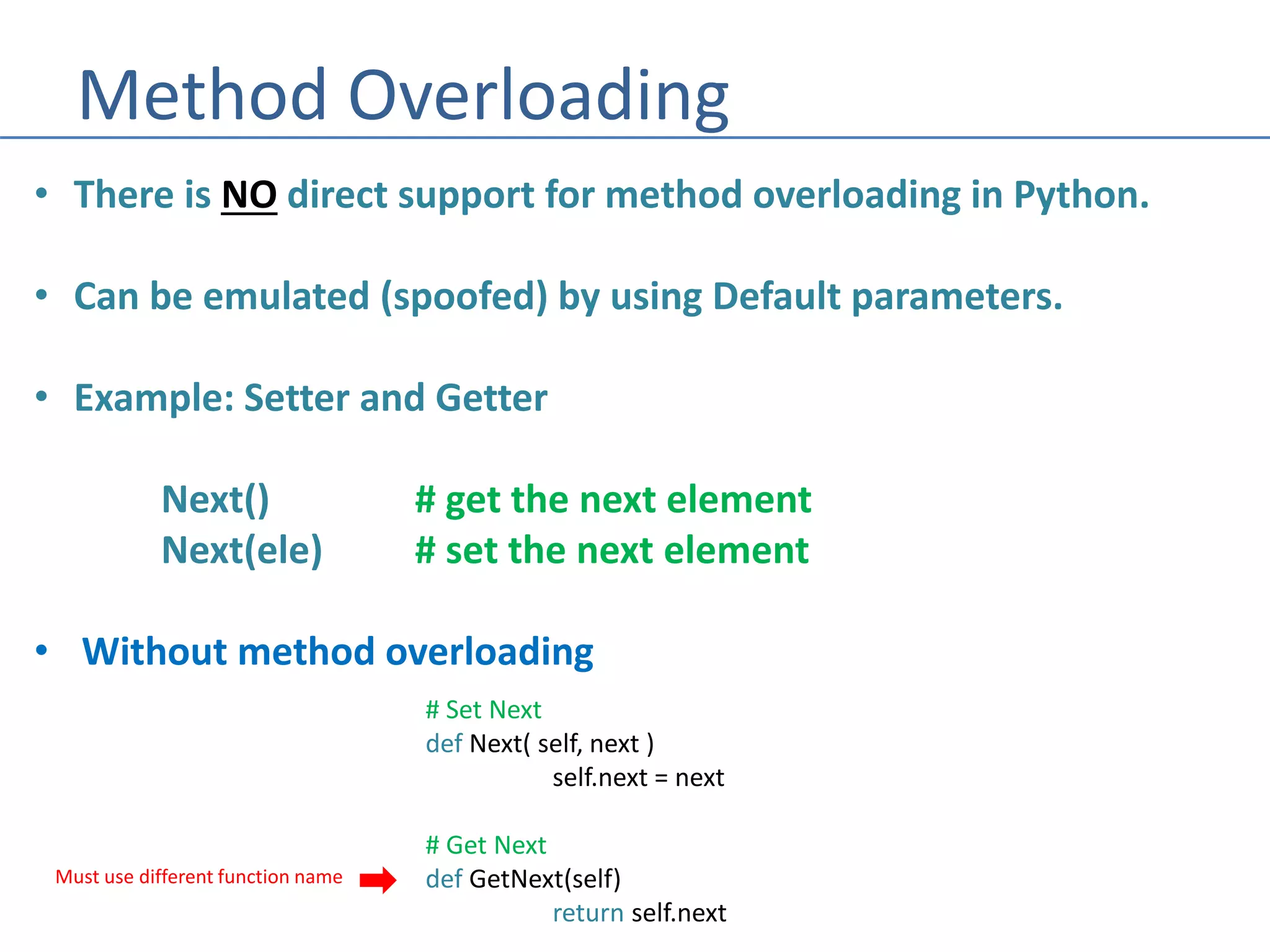
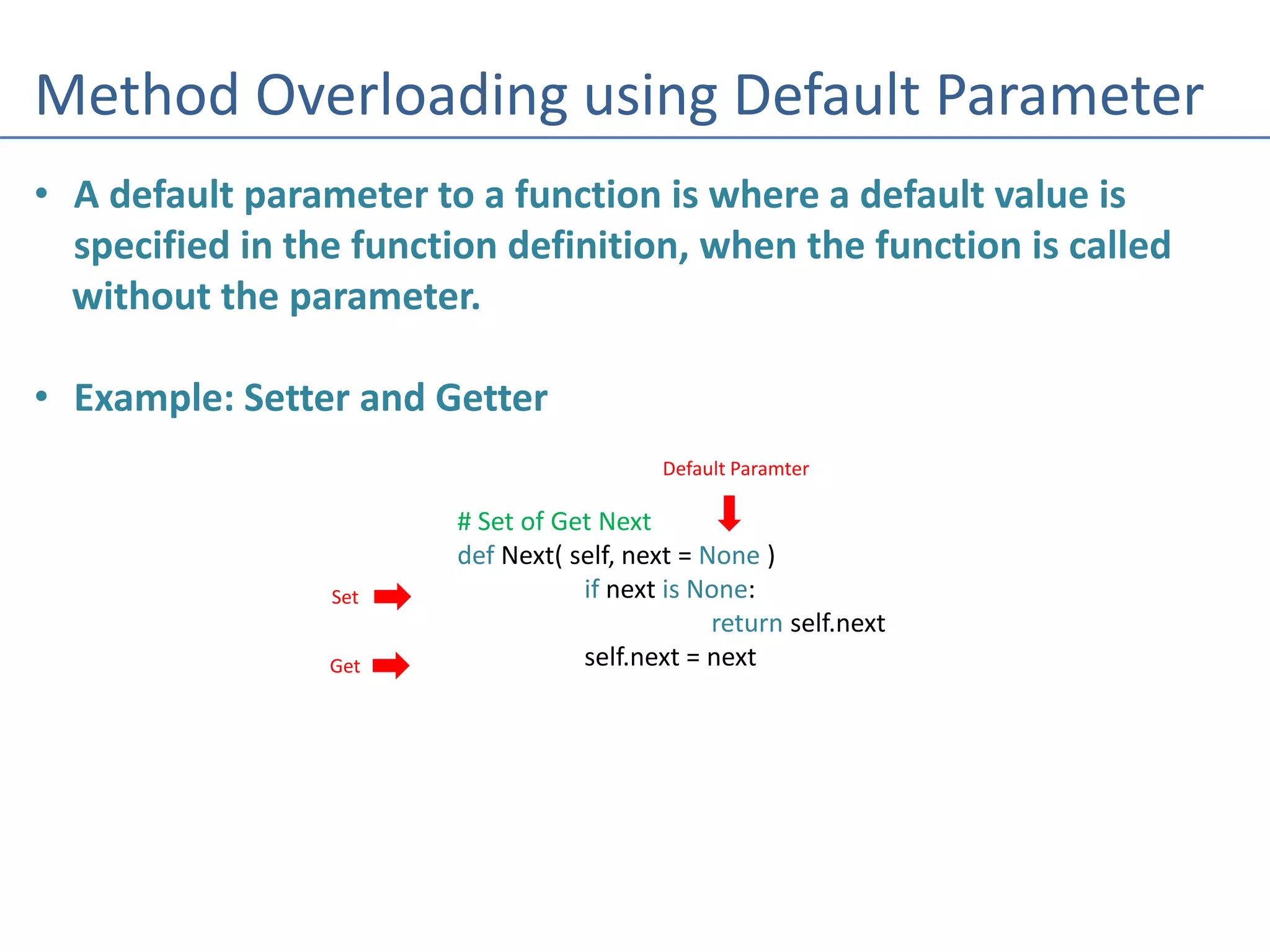
![Operator Overloading
• Built-in operators (+, -, str(), int(), … ) can be overloaded for a
class object in Python.
• Each class has a default implementation for built-in operators.
the default implementations (magic methods) can be overridden to
implement operator overloading.
• Built-in operators are designated using the double dash __name__
convention. Below are some of these magic methods:
__str__ string conversion __add__ + operator
__int__ integer conversion __sub__ - operator
__eq__ == operator __mul__ * operator
__ne__ != operator __divmod__ / and % operator
__lt__ < operator __len__ len() operator
__le__ <= operator __getitem__ [] index operator](https://image.slidesharecdn.com/python-oop-171017190310/75/Python-OOP-Programming-7-2048.jpg)
